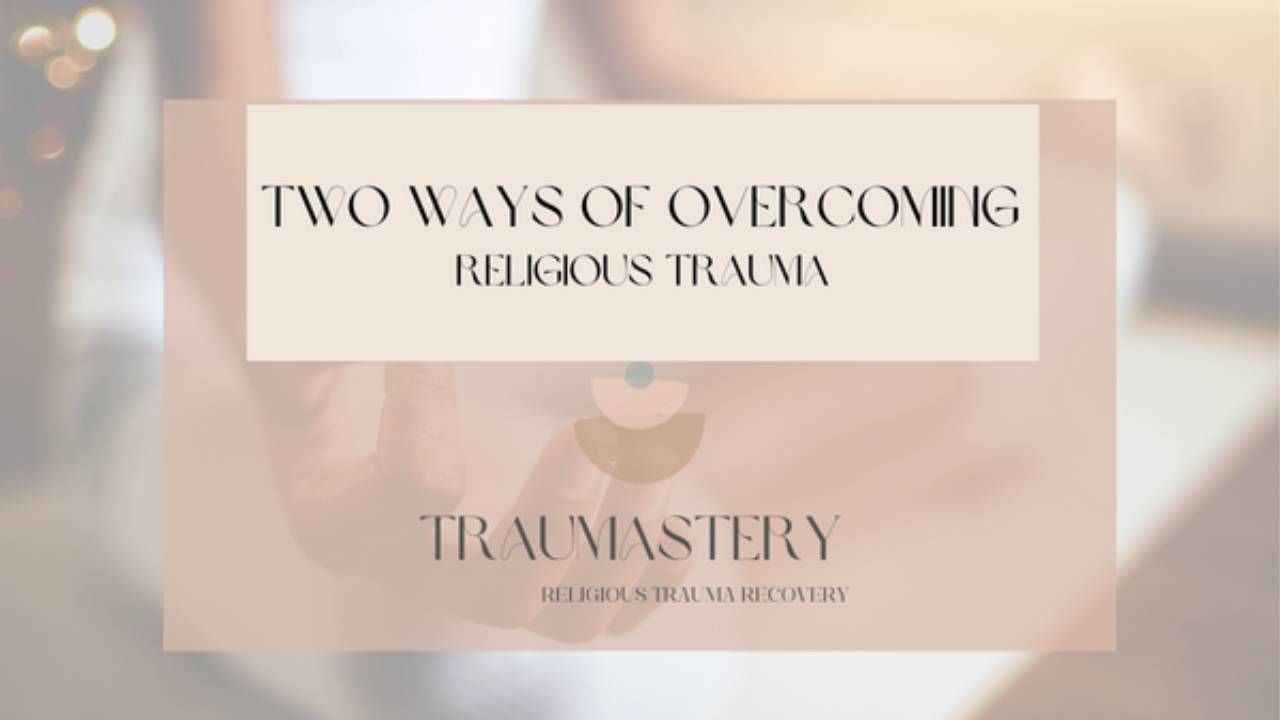Two Ways of Overcoming Your Religious Trauma

Religious trauma is a specific kind of trauma that happens within religious or spiritual spaces. That means religious spaces, rituals, beliefs, members, and leaders can all be the perpetrators of trauma. You can read more about what defines religious trauma here. Religious trauma is especially hard to understand because it happens in communities or spaces that promise to keep us safe and protected. Yet in those very communities, there’s a painful event or a series of events that are traumatic for the members of the congregation.
Here are some common examples of religious trauma:
-
Sexual abuse
-
Belief systems that devalue certain members of the community (women, black and brown folks, queer folks)
-
Crimes (such as abuse, sexual abuse, or physical violence) are covered up for the sake of the reputation of the community or leaders.
-
Beliefs cause anxiety or panic in members, such as through apocalyptic or eternal damnation doctrine.
-
Repression of certain members of the community.
It’s important to understand that there are many ways to perpetuate religious trauma and this is not a comprehensive list. It is possible for trauma to have occurred but not listed above.
How do you overcome religious trauma?
There are many ways to address religious trauma, but here are the two that I believe are the most effective in beginning the process of overcoming religious trauma
-
Education and exposure. The chances are high that you have had limited access to other resources in the midst of religious trauma. That’s usually how these communities become traumatizing: when they limit access to other education or understandings. This can cause religious trauma symptoms to become worse over time because there’s little access to other ways of understanding what has happened to the survivor. It’s important to expose yourself to other ways of thinking. Perhaps it’d be helpful to take a course on trauma. Perhaps you might need to read other texts that aren’t religious. Perhaps you simply need to expose yourself to different communities and ways of seeing the world.
-
Support. Overcoming religious trauma is going to be tricky because understanding your trauma often means untangling that your community wasn’t as safe as they promised and the people in charge might not have been as infallible as they once preached. So your entire worldview is being called into question and you’re going to need some support to get through this season. Finding others that understand your experience and perhaps give you a little comfort along the way can make a big difference in your religious trauma healing journey.
Survivors: We have therapists that specialize in helping people leave traumatic communities and recover from their impact. If you are looking for ways to get both education and support, we’ve created our no-pressure community led by a clinical psychologist that specializes in religious trauma and cult recovery. You can read more about and register for A Year of Non-Magical Thinking here.
Therapists: If you are a therapist or clinician wanting to learn more about religious trauma and cult recovery, we have a curated membership that walks you through indoctrination, deconstruction, coercive control, and other culty topics. Come join us to take your competence in treating religious trauma cases in powerful ways in A Year of Non-Magical Thinking for Therapists.


